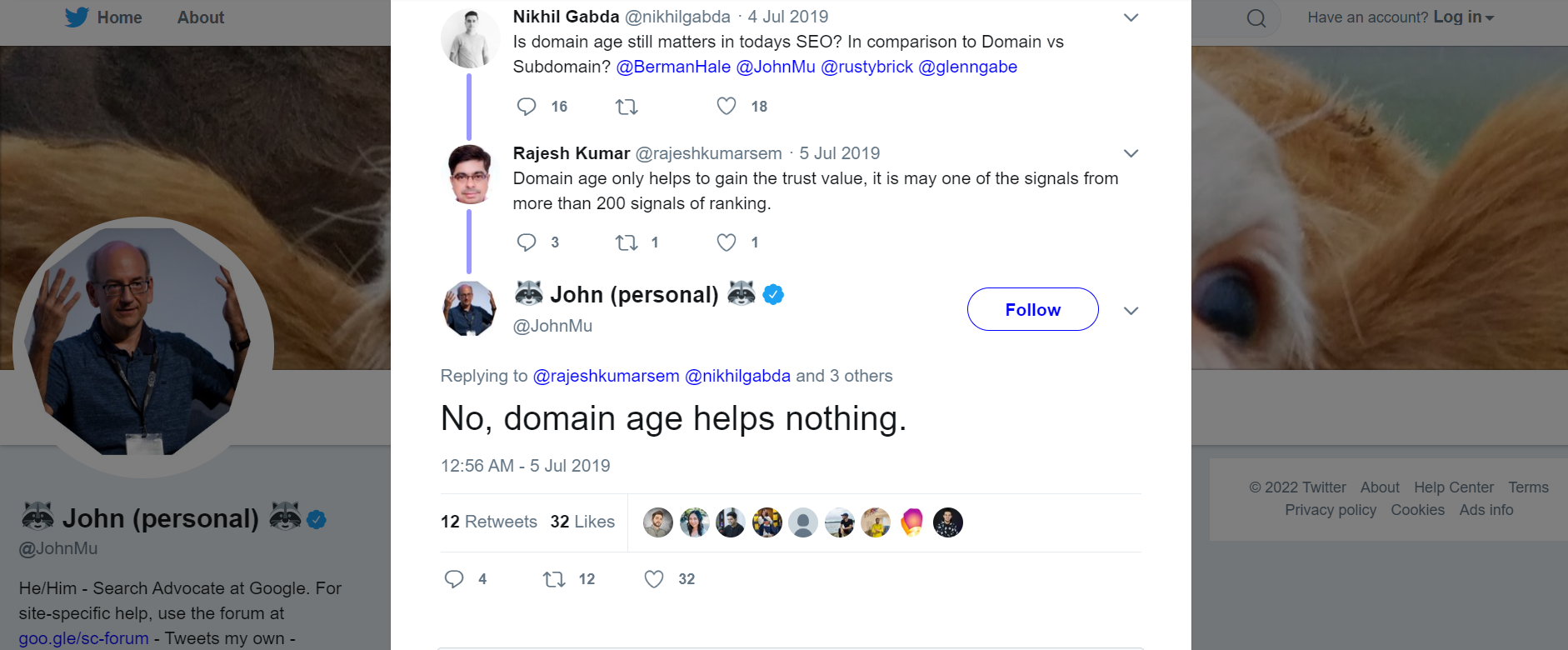What is Domain Age?
Domain age refers to how long a domain has been registered. For example, a domain registered in 2015 will be considered ten years old in 2025.
Many site owners suspect domain age is a Google ranking factor. This has made them prefer registering domains previously registered to other owners. However, Google’s search advocate, John Mueller, has clarified that domain age has zero SEO benefits.

Google has also clarified that it begins calculating the domain age starting from the date it first discovered the domain and not the day the domain was registered. So, it may not be unusual for Google to think your domain is younger than it actually is.
Why Bloggers Are Interested in the Domain Age
Many bloggers believe the domain age has some effects on rankings. Two major concerns revolve around whether the domain age can improve rankings and whether it can prevent a site from ranking. Let us quickly address them one after another.
1 Whether the Domain Age Improves Ranking
Many bloggers believe Google uses domain age as a signal to determine a site’s trustworthiness. They also insist that Google favors older domains and will typically rank them higher than newer ones.
However, Google has repeatedly mentioned that domain age does not improve a site’s rankings, and bloggers should not worry much about it. Google has, however, confirmed that it once filed a patent detailing it could use a domain’s historical data in its rankings.
While many interpreted this to mean that Google factors in the domain age in its rankings, Google has mentioned that it does not use all its patents.
2 Whether the Domain Age Prevents a Site From Ranking
Many bloggers are more concerned about whether their domain age may prevent them from ranking. Specifically, they believe that newer domains may find it harder to rank on 検索結果ページ than older domains.
These bloggers are often talking about the Google sandbox, which is rumored to be a filter that prevents new sites from ranking on search results pages.
Google has denied having a sandbox. However, it has confirmed it has some algorithms that may behave like the sandbox. Google added that it uses these algorithms to compare the content on the page against similar pages published by other sites.
In this case, it is highly likely that Google uses the domain age to determine which sites to sandbox. This became more plausible after a 2024 data leak revealed that Google uses an attribute called hostAge to determine which sites to sandbox.
The leaks also confirmed Google gathers information on a domain’s registration details. This could be helpful for determining when a site or domain name is sold to a new owner, which could make the site eligible for sandboxing.
It is important to know that the domain age is not the only factor that could cause a site to be sandboxed. Google can sandbox a site if it has been inactive for a while or changed its niche, design, or registration details.
In all, it appears that there is some truth in the domain age affecting the rankability of a site. It is not a ranking factor and probably does not improve a site’s ranking, just as Google has said. However, it could prevent a site from ranking, especially when the site is a new one.